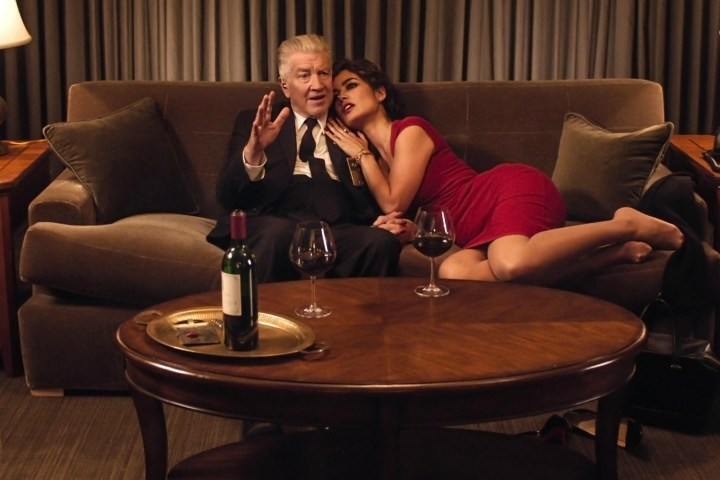
In Lynch’s works, emotions reign supreme
Newcomers to Twin Peaks, who may know the show by reputation, may be startled by some of its more peculiar qualities. Chiefly, that applies to acting that many would describe as “bad.” Actors in David Lynch’s films tend to “overact,” to play up their characters’ emotions in ways that seem outlandish compared to other prestige dramas.
Lynch’s use of exaggerated performances is deliberate, however, and fitting for the atmosphere he creates in his works. Dreams and the subconscious mind are recurring themes in most of his great works, Twin Peaks included, and exaggerated acting establishes that the world of the show is one built on emotion. Dale Cooper’s investigative process, after all, often involved dream analysis and intuition, rather than cerebral techniques.
The most obvious evidence that overacting in Lynch’s work is a stylistic choice is how he sometimes employs more traditional performances. For much of Mulholland Drive, Naomi Watts plays a character named Betty, whose relentlessly chipper, theatrical demeanor makes her seem a parody of aspiring starlets. Near the end of the film, Betty’s persona is revealed to be an act; the character’s true identity is Diane Selwyn, a struggling actress seeking revenge against a successful woman who spurned her. At this point, her performance becomes more subdued, rife with the pauses and asides one expects in a more naturalistic performance. The dream world has given way to reality.
This same juxtaposition can be seen in Twin Peaks. Contrast the performances Kyle MacLachlan gives as the two Coopers, the FBI agent and his evil doppelgänger. Vintage Cooper scenes from the show’s original run often go big, with loud proclamations of his love for coffee. MacLachlan’s performance as the doppelgänger is subtler, laced with a calm menace, the kind of performance that wouldn’t be out of place in an episode of Breaking Bad or The Sopranos.

Part 12 is full of typically Lynchian performances, from Diane’s snarling meeting with the FBI to Audrey Horne’s (Sherilyn Fenn) loud, profanity-laden return. Audrey’s one scene in the episode is noteworthy not just because it marks the return of one of the show’s most beloved characters — 12 episodes into The Return, no less! — but because of how disconnected it feels. The scene is a conversation between Audrey and Charlie (Clark Middleton), her apparent husband. She wants to go looking for a man named Billy, who she very openly calls her lover, and who has been missing for days. Charlie protests that he has a mountain of paperwork to deal with, and that he is tired.
If not for the presence of Audrey, one could be forgiven for thinking this was a scene from some other show entirely,las it lacks any context in the episode. There is not even a mention of Richard Horne, whom many believe to be Audrey’s son. The scene plays out like a one-act drama, with the details of Audrey and Charlie’s relationship sketched in through their dialogue. It feels distinctly theatrical, with heightened emotions — Audrey’s frustration, Charlie’s weariness — taking precedence over narrative.
The art of the pause
Another technique Lynch employs alongside heightened performances is the act of pausing in dialogue. It seems like a simple thing, something that should normally go unnoticed, but scenes in Twin Peaks drag pauses out to often uncomfortable lengths. A character saying nothing can sometimes produce more emotion than any line of dialogue. Charlie has an excruciatingly long phone conversation with Diana, in which the audience, like Audrey, can only listen to Charlie’s side of the conversation, wondering what the other half is saying.
After he finishes, Charlie hangs up in a drawn-out fashion, and simply stares at Audrey, while her face twitches. She eventually bursts out at him, bet gets no response. Charlie’s cool silence contrasts with Audrey’s volcanic temper. In a small moment, we see all the tension of their marriage laid out.

Lynch’s use of pauses and silence can be used for comedic effect. When Albert comes to Gordon Cole’s room to deliver news about Diane, whom they suspect is communicating with Cooper (his doppelgänger, unbeknownst to them), he finds his comrade with a woman. She leaves, taking an agonizing amount of time to gather her things while Albert looks on in grave silence. Once she’s out of the room, Gordon explains that she is in town visiting a family friend, a turnip farmer, whose daughter has gone missing. “I told her to tell the mother that her daughter will turn up eventually,” Lynch explains in his usual monotone shout. Albert’s blank stare as Gordon waits for a reaction is Twin Peaks’ humor at its finest and rich in understatement.
These moments may seem wooden or awkward to audiences used to the naturalistic performances that dominate films and shows. Realism is king, even if a show deals with unrealistic subject matter, but Twin Peaks shows how exaggerated performances and dialogue can better reveal the emotions of the characters.
For more Twin Peaks discussions, check out our thoughts on Part 11, Part 10, and Part 9.


